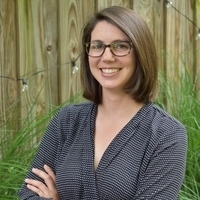"Radiopharmaceuticals: A new frontier for membrane separations" by Christine E. Duval

Abstract
Ac-225 is a promising isotope for targeted alpha therapy (TAT, a personalized cancer treatment) that has shown excellent patient outcomes by avoiding whole body doses of radiation while successfully treating otherwise pervasive cancers. To date, all 225Ac used in domestic clinical trials was harvested from legacy nuclear waste at Oak Ridge National Laboratory. This legacy supply of 225Ac is so limited that only 1 in 5,500 people who qualify for the treatment are able to receive treatment. To produce clinically relevant quantities of 225Ac, 1) nuclear physicists need to develop new production routes in accelerators or cyclotrons and 2) separation scientists need to develop new purification processes. Resin-based extractive chromatography has long been the workhorse for medical isotope purification. While these separation materials perform well in bench-scale purification schemes—they cannot be scaled up for clinically relevant production. In this talk, we discuss the limitations of the current state-of-the-art production and purification processes for medical isotopes. Then, we will discuss our group’s efforts to synthesize membrane adsorbers—a scalable, high-throughput alternative to extractive resins for accelerator produced 225Ac.
Biography
Christine Duval is an Assistant Professor in the Department of Chemical and Biomolecular Engineering at Case Western Reserve University in Cleveland, Ohio. Professor Duval’s research group develops advanced materials (resins and membranes) for highly selective separations. These materials have applications in nuclear forensics, medical isotope purification and environmental remediation. Duval received her B.S. in chemical engineering from the University of Connecticut in 2011 and her Ph.D. in chemical engineering from Clemson University in 2017. Outside of academics, she was a business strategist at the Connecticut Center for Entrepreneurship and Innovation and a DOE Scholar at the US Department of Energy’s Office of Intelligence and Counterintelligence in the Nuclear Materials Information Program. In 2020 she received the DOE Early Career Research Award from the Isotope Program in the Office of Nuclear Physics.
Contact the Department of Chemical and Biomolecular Engineering for the Zoom link.
Seminar sponsored by the Department of Chemical and Biomolecular Engineering.